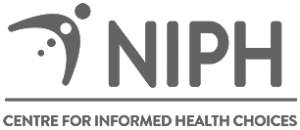Sponsors
The Ministry of Health is the government sector responsible for the administration and maintenance of public health in the country. Through its Secretariat of Science, Technology and Strategic Inputs of the Ministry of Health (SCTIE), it formulates and implements national policies on science, technology and innovation in health, pharmaceutical assistance and promotion of research, development and innovation in health.
The TDR, the Special Programme for Research and Training in Tropical Diseases, is a global programme of scientific collaboration that helps facilitate, support and influence efforts to combat diseases of poverty. It is hosted at the WHO, and is sponsored by the UNICEF, the UNDP, the World Bank and WHO.
Alliance for Health Policy and Systems Research
The Alliance for Health Policy and Systems Research (the Alliance) works to improve the health of those in low- and middle-income countries by supporting the generation and use of evidence that strengthens health systems.
The Policymaker Roundtable received financial support from the Alliance for Health Policy and Systems Research. The Alliance is able to conduct its work thanks to the commitment and support from a variety of funders. These include our long-term core contributors from national governments and international institutions, as well as designated funding for specific projects within our current priorities. For the full list of Alliance donors, please visit: https://www.who.int/alliance-hpsr/partners/en/
The World Health Organization (WHO) is the directing and coordinating authority for public health within the United Nations system. The WHO Regional Office for the Eastern Mediterranean is one of WHO’s 6 regional offices around the world. It serves the WHO Eastern Mediterranean Region, which comprises 21 Member States and Palestine (West Bank and Gaza Strip), with a population of nearly 679 million people.
Cochrane is for anyone interested in using high-quality information to make health decisions. Whether you are a doctor or nurse, patient or carer, researcher or funder, Cochrane evidence provides a powerful tool to enhance your healthcare knowledge and decision making.
Cochrane’s 11,000 members and over 68,000 supporters come from more than 130 countries, worldwide. Our volunteers and contributors are researchers, health professionals, patients, carers, and people passionate about improving health outcomes for everyone, everywhere. Our global independent network gathers and summarizes the best evidence from research to help you make –informed choices about treatment and we have been doing this for 25 years.
Partners
- Campbell Collaboration
- EVIPNet Americas
- Federal Institute of Education of Espirito Santo, Brazil
- Federal University of Health Sciences, Porto Alegre, Brazil
- Federal University of Minas Gerais, Brazil
- Global Evidence Synthesis Initiative
- Health Institute of São Paulo, Brazil
- Health Systems Global
- International Initiative for Impact Evaluation (3ie), London, UK
- Open University of Brazilian Unique Health System (SUS)
- PAHO
- University of Campinas, Brazil
- Veredas Institute, Brazil
- University of Melbourne, Australia






